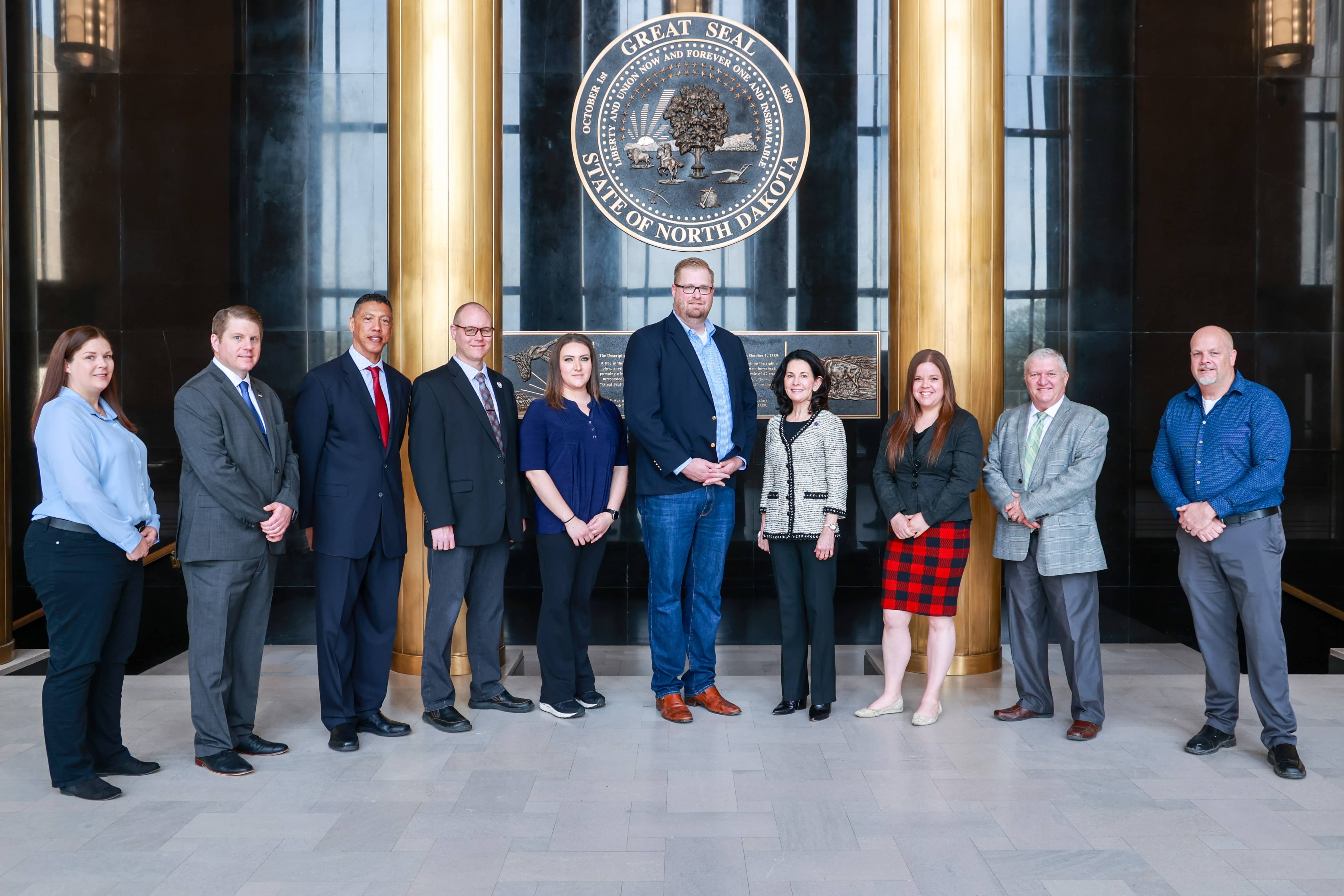
Members of the North Dakota Insurance Department Fraud Investigation Division and NICB join Lt. Gov. Tammy Miller at the State Capitol in Bismarck.
BISMARCK, N.D. Gov. Doug Burgum has declared May 22-26, 2023, as Contractor Fraud Awareness Week. Catastrophic events can leave millions of Americans across the country struggling to recover and rebuild their lives. These events also provide an opening for dishonest contractors looking to take advantage of homeowners. According to the National Insurance Crime Bureau (NICB), insurers paid $92 billion in catastrophe losses, with upwards of 10% or $9.2 billion lost to post-disaster fraud in 2021.
“The Fraud Investigation Division at the North Dakota Insurance Department has collaborated with all stakeholders to crack down on contractor fraud. We’re working with agents, consumers, companies and the NICB,” said Insurance Commissioner Jon Godfread. “Contractor fraud negatively impacts North Dakota’s insurance industry, which generates higher consumer premiums. This practice of fraud is something we’re determined to squash.”
NICB recommends reviewing the following tips before hiring a contractor for services:
Be wary of anyone knocking on your door offering unsolicited repairs to your home.
Be suspicious of contractors who try to rush you, especially on non-emergency or temporary repairs.
Be on the lookout for change order fraud, when a corrupt contractor submits fraudulent change orders to increase the work price or improperly extend a contract without your permission. Do not believe a contractor who says they are supported by the government. The Federal Emergency Management Agency (FEMA) does not endorse individual contractors or loan companies. Call FEMA toll-free at 621.FEMA for more information.
Be selective in choosing a contractor. Consider recommendations from trustworthy sources, such as family, friends, and neighbors, or search online. Get at least three written estimates for the work and compare bids. Check credentials with the Better Business Bureau or state attorney general’s office to see if the contractors have any outstanding complaints.
Always have a written, detailed contract that clearly states everything the contractor will do, including prices for labor and materials, clean-up procedures, and estimated start and finish dates.
Never sign a contract with blank spaces. A crooked contractor could alter after they receive your signature.
Never pay for work upfront. Always inspect the work and make sure you’re satisfied before you pay. Most contractors will require a reasonable down payment to start but do not pay anything until you have a written contract. Avoid paying with cash; use a check or credit card instead. This creates a record of your payments to the contractor.
